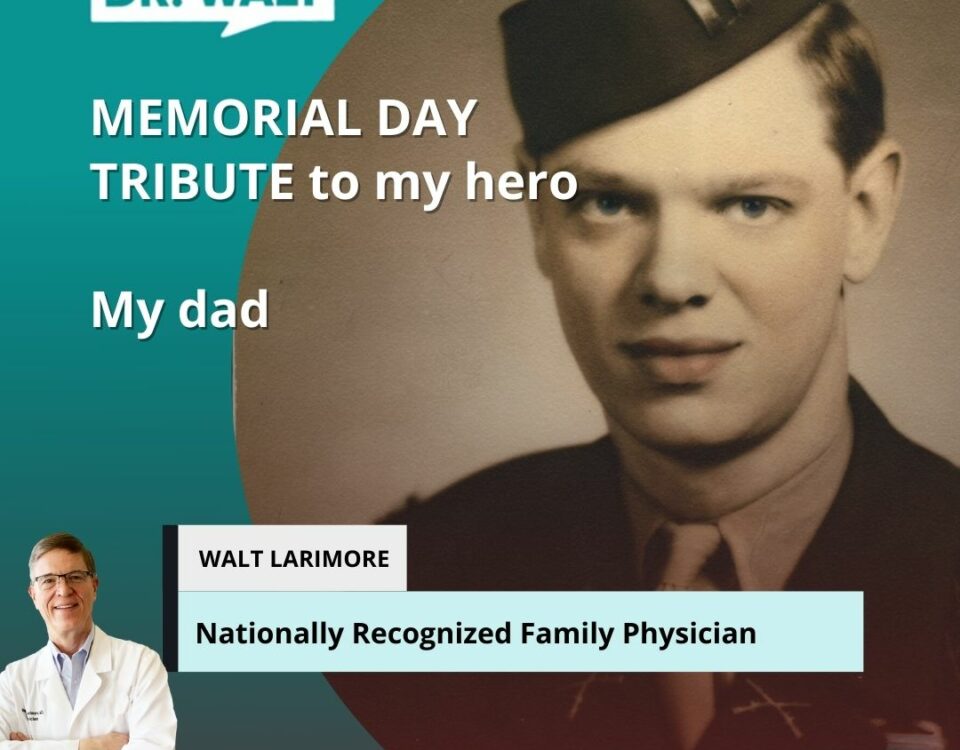
April 6, 1945 (Part 1) — Attacking a deceptively quaint but deadly German farming village
April 6, 2025
April 7, 1945 — The amazing capture of the Bad Kissingen resort and for a fleeting moment the war was forgotten
April 7, 2025On the approach into Oberthulba, Phil had three Sherman tanks and TDs at his disposal, one for each platoon. Using the tanks as cover, the three platoon leaders set up heavy machine gun nests in shallow ditches.[1]

As the platoons began to move forward, significant fire came from enemy machine guns in the forests on both sides of the village. Phil’s tanks and heavy machine gunners quickly silenced them. Several white flags were raised above one enemy machine gun nest, but the flags disappeared when a mortar shell disintegrated the nest and presumably the men in it.
Phil had his flanking platoons use their BARs and light machine guns to lay down suppressing fire along the forest edge. Then he looked at his watch. In two minutes, a ten-minute-long artillery barrage would commence. The shelling aimed at the town center would give him and his men a distinct advantage. He called the timing to his platoon leaders and heard the roar of tanks as they prepared to move forward with the infantrymen advancing behind them.
“Do not move forward until 1708 hours, two minutes before the artillery ends,” Phil barked into the radio handset. The goal was for the men and tanks to hit the edge of town just as the barrage ended.
Precisely on time, at 1700 hours, the preparatory barrage began. Like all frontline men, Phil loved the sound of artillery—as long as it was his own. Wave after wave of artillery shells whistled overhead, as if taking flight from the forest directly behind them, sailing over the treetops and the advancing men, and pouring into the town in one roaring explosion after another. A cacophony of smaller eruptions from M1 mortars[2] joined in the fiery mayhem. Then an unusual and unexpected surprise descended upon the Germans.
A half dozen roaring and shiny P-47s emerged from the skies, the setting sun’s rays reflected on their silver bodies and wings. They swooped down over the village and unleashed their 50-caliber machine guns while raining down more bombs. In a few short minutes, the combination of artillery and air firepower had turned Oberthulba into a fiery inferno.
The P-47s roared back up into the sky, each steeply banking, and then returned for a second strafing run with their machine guns and cannons unloading out a hailstone of red-hot lead and explosive shells before disappearing to the west. Meanwhile, artillery continued to whistle overhead and explode in the town.
Two minutes before the artillery was scheduled to stop, Phil radioed out commands to prepare to seize the village. He could see his trained veterans, with scattered but now battle-tested replacements, crouched and ready to spring. Phil wondered how anyone could have survived the thrashing the town had taken, but he knew that the stone buildings contained cellars where the enemy could patiently wait out the barrage.
The tanks began to rev their engines. Phil counted down the seconds: ten, nine, eight….
“Attack!” he yelled into the radio. “All platoons attack!”
He prayed he had the timing right as artillery shells continued to fall. The tanks edged forward with some of the men following behind them. Other soldiers spread out, using marching fire in their approach formation. The tanks moved slowly enough for the men to keep up. The tank machine guns and cannons spewed fire. Time almost seemed to stand still. Rounds from the light and heavy machine guns, punctuated by tracers, once again formed an umbrella of molten lead and steel over the advancing men’s heads.
When the men were within fifty yards of the town’s outer edge, the artillery fire stopped. Beyond thick billows of swirling smoke, orange flames reached into the air from an untold number of burning buildings.
Phil’s chest swelled with pride, and his spirit overflowed with gratitude. The coordination and formations of men, air power, artillery, and armor were textbook perfect. He hadn’t seen an attack this precise and well-coordinated carried out for the entire war—even since training back at the Alliance Air Base. He wished his superiors were here to see his men perform.
He heaved a sigh of relief as the men and armor quickly infiltrated the edge of town and vanished into the smoke and maelstrom. Phil was just about to command his CP men to move forward when a pair of German machine gun nests opened up from each side of the town. The nest to the north was perched in the upper part of a large barn, while the machine gun nest to the south sat behind a large haystack.
Without having to radio a command, the 1st Platoon Sherman turned, and with one expertly placed shell from its 76-mm cannon, disintegrated the barn into a ball of fire and smoke. On the other side of the village, almost at the same moment, two of his 3rd Platoon’s heavy machine guns rained scorching hot lead shells into the haystack, which instantly erupted ablaze. He saw at least two Germans, their bodies engulfed in flames, trying to escape. They didn’t get but a few steps before machine guns cut them into flaming pieces of flesh.
Phil and his CP men, including his Executive Officer Abe Fitterman, began to double-time toward the village center. To his utter surprise, the main road was littered with dead and dying Germans of every imaginable age—from young teens to older men.
So, this is what the end looks like.
Phil had heard from Colonel McGarr that the German High Command had ordered fanatical “last man” stands at every town to give the Nazis more time to prepare defenses in larger cities. The Krauts were sending their least effective soldiers—the very old and very young known as the Volkssturm[3]—to the front lines, no doubt saving their best troops for the very end.
As he entered the main road into the burning village at 1730, after just twenty minutes of overwhelming, stiff—but fleeting—opposition, Phil spotted a parade of around one hundred dazed and shocked German soldiers being marched to the rear, their hands clasped behind their heads. Many were wounded and bleeding. All seemed stunned and confused. As Phil and Abe moved down the street, his men were shoving other German prisoners out of buildings on either side of the road. The Kraut soldiers looked terrified as the GIs shouted commands and pushed them forward with the tips of their rifle barrels.
The German POWs were generally easy to handle. Still, Phil knew that it was the officers he had to watch out for, especially those who were part of the SS, the military branch of the Nazi Party’s organization. There were stories that SS officers were shooting fellow German soldiers who waved white flags, advanced toward the Allied lines with their hands up, or surrendered. Maybe that’s why these prisoners looked so nervous.
Phil recalled how just a week earlier, in the center of one small German town, one of his men had brought out an older man, a German civilian, in a crumpled suit, carrying a small white handkerchief that he waved over his head. “He’s the mayor,” the private explained. “Here to surrender.”
The town mayor kept looking nervously over his shoulder, which aroused Phil’s instincts. He put his hand on his holstered Colt .45, unlatched the holster flap, lifted the gun slightly, and clicked off the safety. At that moment, an SS officer stepped out of the shadows with his 9-mm Luger drawn.
The German SS soldier shot the old man in the head, to everyone’s shock.
Then he immediately swerved to fire at Phil when Phil dropped to one knee, drew his pistol, and rapidly fired twice, using a combat two-handed grip. The SS man’s forehead and chest exploded as he was blown backward, dead before he hit the pavement. Phil’s men were not surprised; they had seen his expert marksmanship many times.
In Oberthulba, four SS officers were shoved out of a building and onto the street by several GIs. Suddenly, an SS officer lunged at one of his men’s rifles. The GI hit the German in the shoulder with the steel butt plate of his Garand, knocking him to the ground.
Like an angry bull, the frenzied SS officer leaped off the ground and attacked. The GI hit him in the head with the butt plate, sending him reeling to the cobblestoned street a second time. The SS officer, dazed and bloody, slowly pulled himself to his knees and then charged again.
This time the German soldier was struck so hard in the head that he never got up.
“Damn,” Abe Fitterman muttered to Phil. “SS officers are unpredictable SOBs.”
Phil nodded. “No doubt, they’re the elite of the German Army system. Unfortunately, they’re worshiping the wrong god. Hitler’s leading them all to hell.”
“Happy to send this one there early, Lieutenant,” the GI with the rifle said.
~~~~~
That evening, after everything was buttoned up in Oberthulba, Phil was hoping for orders to find a CP and billet for the night, but it was not to be. The men were ordered to keep moving. Three miles further east, the company arrived just outside the town of Albertshausen at midnight, where they were met by light enemy resistance. By 0225 on the morning of April 7, 1945, Company L had taken and cleared the town. The men’s morale was excellent. It had been, by all counts, a perfect day.
Phil made sure his Love Company men billeted in the best houses in town. Residents were awakened with a loud knock and were told they had fünf minuten—five minutes—to leave. Following one family’s hasty departure, Phil and his men entered the home, where one of the men started a fire in the living room fireplace. Smoke began to fill the room. Turned out the chimney wasn’t drawing. After opening the damper and clearing the air, one of his men investigated and found the chimney flue stuffed with smoked hams and sausages that the family had tried to hide. The banquet was shared with several houses. With full tummies, the GIs luxuriated with a hot shower and slept in duvet-covered beds with thick, soft mattresses.
For some reason, though, Phil couldn’t sleep, even though he was pleased most of his men were inside a warm home with a full stomach and a comfortable bed. He spent time visiting each of the sentries and men in the outposts.
He loved leading Company L, loved his guys, and admired the tenacity they were showing in the last stages of a long war. He sensed the Germans couldn’t hold out much longer, not after what he’d seen that afternoon. There were rumors that the Russian Army would arrive at the city gates of Berlin any day now.
Phil didn’t care who got there first.
Now that victory was in sight, he just wanted this war to be over and go home.[2]
~~~~~
[1] Larimore, At First Light, 245.
[2] The M1 mortar was an American 81-millimeter caliber mortar.
[3] The Volkssturm was a national militia established by Nazi Germany during the last months of World War II. The militia was not set up by the German Army but by the Nazi Party on the orders of Adolf Hitler. It was staffed by conscripting males between the ages of sixteen and sixty years who were not already serving in some military unit, and it comprised one of the final desperate components of the war.
Larimore, Ibid, 245-249.
Learn more about my book about my father’s heroics and exploits at Amazon’s First Light page here. You can also read more of my WWII blogs here as well!
© Copyright WLL, INC. 2025.



